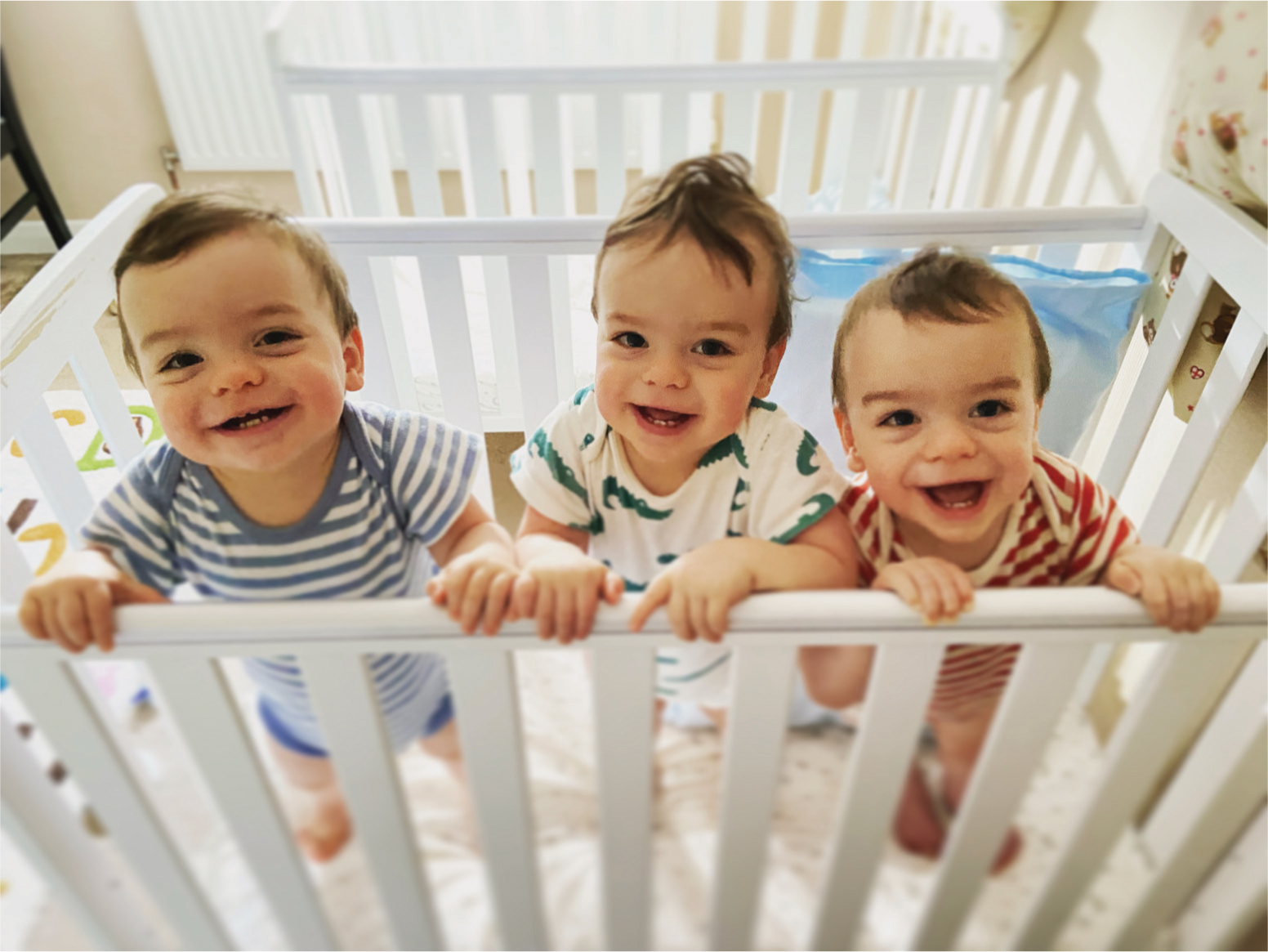The charity Twins Trust estimates that there are fewer than 100 multiple births midwives across the UK, despite there being usually around 10 000 multiple births each year (Office for National Statistics, 2023). Multiple births specialist midwives work with Twins Trust to make sure that parents-to-be are provided with the best care throughout their pregnancy and birth.
More than 40 years ago, the charity was born to support families with twins, triplets and more. Twins Clubs Association was founded in 1978, later renamed TAMBA (Twins and Multiple Births Association); it became Twins Trust (2019) in 2019.
Twins Trust is the only UK-wide charity dedicated to improving the lives of families with multiples. The charity has been there for thousands of families since it started and today, support is still very much at the heart of its work. Services are made to suit families' needs, and staff have a wealth of experience to guide parents from the early stages of pregnancy right through to adulthood and beyond.
Shauna Leven, chief executive of Twins Trust, said that ‘multiple birth families face unique challenges and we're here for them, every step of the way. With over 40 years' experience, we tailor our services to our families' needs. We support and empower parents and professionals, invest in research and create systemic change to ensure the best possible outcomes for our families’.
Multiple pregnancies make up 1.4% of all pregnancies but 6.6% of stillbirths and 12.1% of neonatal deaths (Draper et al, 2021). The risk of preterm birth is also considerably higher, occurring in at least 50% of twin pregnancies, with twins facing six times the risk of cerebral palsy (National Childbirth Trust and Twins and Multiple Births Association, 2015).

The charity runs a world-first quality improvement programme in conjunction with maternity units. It focuses on improving maternity care for multiple pregnancies. Shauna Leven feels that ‘by providing support to implement [National Institute for Health and Care Excellence] twin and triplet pregnancy guideline NG137 and specifically quality standard 46, maternity units could improve the care provided to those experiencing a multiple birth. This could lead to reduced rates of stillbirth, neonatal death, neonatal admissions and emergency caesarean sections as well as considerable cost savings. None of this would be possible without multiple births midwives’.
With initial 3-year funding from the Department of Health and Social Care, Twins Trust (2023a) launched the Maternity Engagement Project in 2016. The groundbreaking project has gone from strength to strength and is now in its 7th year.
The project initially worked with 30 maternity units across England to identify and implement changes to improve antenatal care for multiple pregnancies, in line with the National Institute for Health and Care Excellence (NICE, 2019) quality standard 46. Units were audited and supported to implement an agreed action plan. Follow-up re-audits were carried out 1 year later to assess the changes made and their impact. In total, there were 40 statistically significant positive findings that clearly demonstrate that both Twins Trust's support and the NICE guidelines work (Twins Trust, 2018).
When the project was externally evaluated, it found that 100% of units re-audited increased their overall adherence to the quality standard between the baseline and follow-up audits (Twins Trust, 2018). Nine out of 10 professionals involved agreed that ‘if we hadn't done the Maternity Engagement Project we would not have achieved as much positive change’.
In only 12 months, units that participated in the project saw a 5.8% reduction in neonatal admissions, equating to a cost saving of £51 000 per unit and a 3.1% reduction in emergency caesarean sections, according to data collected by the units at the start and end of the audit process. After the success of the initial project, Twins Trust—with midwives at the forefront—now works with units across the UK conducting both in-person and virtual audits.
Many multiple births specialist midwives have been involved with the project since its inception. One midwife, Pam Langford, is from the East and North Hertfordshire NHS Trust, and first became involved in the project when an audit was carried out at her unit. The audit acted as a catalyst for change and formed the basis of a business case that resulted in a real change for women expecting multiples in her unit. Since then, Pam has joined the Twins Trust midwife team and now helps other units to help improve maternity care for multiple pregnancies.
The Twins Trust maternity engagement team worked with NICE to create endorsed multiple pregnancy care pathways for healthcare professionals. With the help of midwives, these were then turned into practical care pathways for expectants.
Pam believes that ‘Twins Trust makes a huge difference to women. It's not just about knowing you've got that one inclusive group of people where everybody understands what you are going through, that is huge but it's not just about that. It's about the changes Twins Trust is constantly vying for. The charity is engaged with the government and NICE maternity guidelines and the Royal College of Midwives to ensure women's voices are heard. It's about the balance of safety over new research and above all - listening to the voices of our women’.
The Twins Trust (2023b) website has an area for healthcare professionals. Registration is free and it provides access to the NICE-endorsed care pathways and continuous professional development videos covering antenatal, intrapartum and best practice. There is also a catalogue of webinar recordings covering everything from determining chorionicity and amnionicity through to labelling, multiple specific complications and mode of delivery, which are free to view. The charity is planning to bring back face-to-face multiple specific days in the near future.


